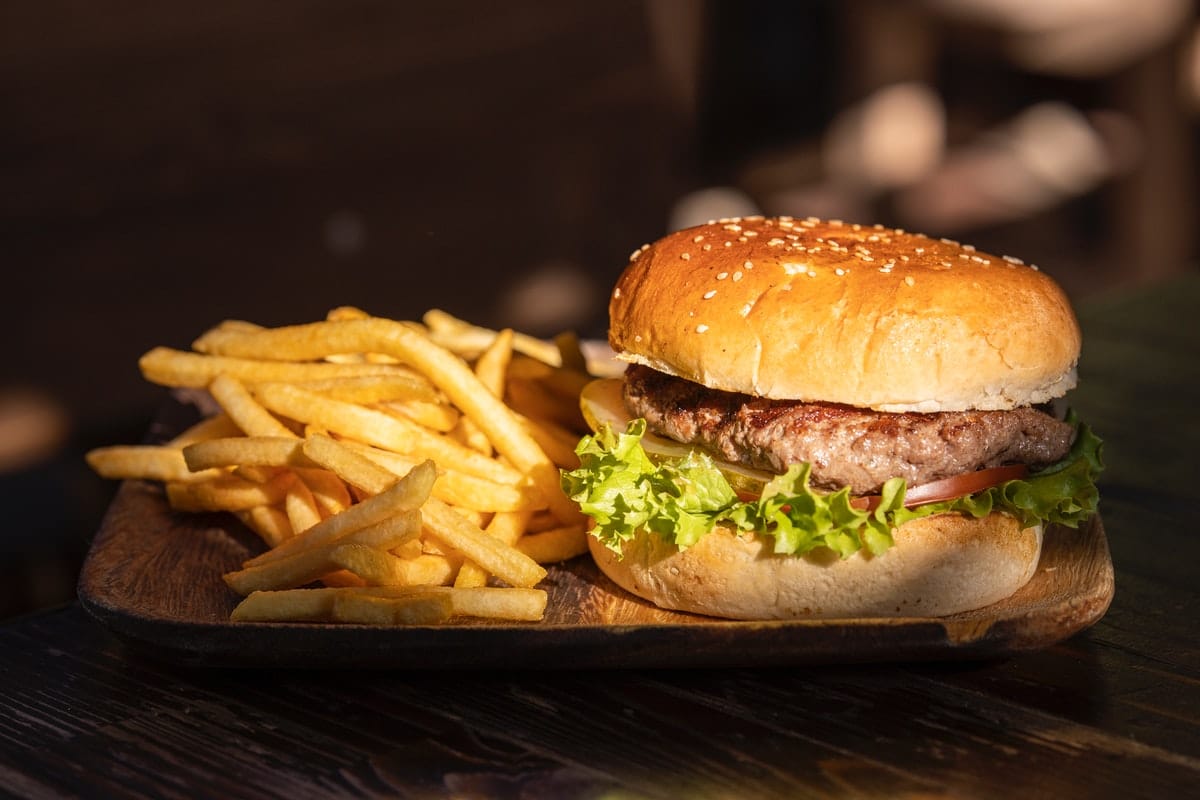Carbohydrates are the most abundant fuel source available for human metabolic processes. Carbohydrates can be classified as simple and complex, and they often determine whether a carbohydrate is nutritious or non-nutritious.
People have an understanding of carbohydrates that are ‘natural’ or ‘refined’ but do not understand what the difference is between these two types of carbohydrates. For this reason, it is important to be well versed in this knowledge, so individuals can make better decisions about what to put into their bodies.
When it comes to making decisions about the food we eat, understanding the difference between natural and refined carbs is important. Refined carbs such as added sugar foods that not offer any nutritional value and can increase the number of risk factors for many diseases and strokes such as LDL cholesterol (bad cholesterol), triglycerides, and inflammation.
Conversely, natural carbs or digestible carbohydrate such as vegetables, whole foods, green beans are rich in nutrients that promote good health. By eliminating refined starch foods from the diet people can lose weight and improve their health. To know more about the context scroll up here

In This Article
What Are Refined Carbs?
Refined carbohydrates are simple carbohydrates that have been manipulated or processed foods. In most cases, this process strips away many of the important nutrients found in natural dietary fiber. On the other hand, complex carbs are known as ‘good’ carbs because they provide many nutritional benefits. Complex carbs are essentially the opposite of refined carbohydrates, as they leave a person feeling full and satisfied after consumption.
Though foods with refined carbohydrates have been processed to the point where they no longer contain naturally occurring nutrients from their original form. Refined carbs are mainly sugars, such as glucose and fructose, which can cause blood sugar spikes. When there is too much glucose in the bloodstream, it becomes converted into fat. Refined starch foods also include other blood sugar such as sucrose, which is found in many processed foods. Other refined carbs include simple starches that have been heavily processed to make them easily digestible.
First of all, natural carbs are found in whole foods such as fruits, vegetables, and whole grains. Refined carbs, on the other hand, sometimes called bad carbs or simple carbs, tend to be processed and lack nutritional value. This is not to say that natural carbs are inherently “healthy” and refined carbs are inherently “unhealthy.”
Natural carbs also come in processed forms. An example is fruit juice, which lacks the fiber of eating whole fruits. There’s no denying that substituting natural for refined grains is a good thing. It can have positive effects on weight loss, disease prevention, and even athletic performance.
What are refined carbs to avoid?
Refined carbs generally get their start as whole grains. Wheat, corn, oats-all of these things can be processed into their refined form. Refined carbs such as chips and cookies do not offer any nutritional value and can contribute to weight gain, heart disease, and diabetes.
There are a few things you can do to reduce the number of refined carbohydrates in your diet. People who are trying to weight loss or are particularly sensitive to blood sugar should avoid eating simple carbs with other diets high benefits. The reason for this is because they are often high in calories while being void of fiber, protein, and other nutrients that slow digestion.
As well as one another way to avoid refined carbohydrates is to read labels on the foods you are buying. When purchasing bread, try to opt for options that have less than five grams of sugar per serving or are whole grain. The same goes for other food items such as pasta sauce – the best option is one that does not contain added sugars.
Many of the complex carbs that are high in fiber help to make you feel full longer because they take longer to digest, leaving your blood sugar levels relatively stable compared to their refined grains or insulin resistance counterparts. For example, replace white rice with brown rice or substitute whole grains for pasta and bread. Also, choose fresh fruit instead of juice and drink water, tea, or coffee instead of high fructose corn syrup.

Why refined carbs are bad for health?
In the above of this article, we already have told that refined starchy foods such as chips and cookies do not offer any high fiber foods. They are often high in sugar, sodium, and trans-fats which can be detrimental to your overall health benefits. Unrefined carbs such as whole grains provide fiber, vitamins, and minerals are considered healthy eating foods.
For example, a cup of brown rice provides over 100 percent of the daily recommended allowance of thiamin, niacin, and folate. One cup of white rice contains zero percent of those vitamins and minerals.
Refined carbohydrates are “bad for health” because there are no nutritional benefits or they are also the reasons for diabetes, heart disease, and obesity. The body breaks them down quickly because they offer little to no fiber, vitamins, or minerals. Instead of a glass of orange juice for breakfast, try a bowl of oatmeal with fruit. These are also called simple carbohydrates, meaning they get broken down quickly by the body.
As compared to refined grains, natural carbohydrates are “good for health” because they come packed with fiber, vitamins, and minerals. Plus, they take longer to break down in the stomach so people feel full longer. Whole-grain bread and pasta offer more nutrients than their processed counterparts. So, swap out white rice for brown and snack on air-popped popcorn rather than potato chips.
Refining food destroys the beneficial parts of natural foods or a healthy diet, which often leaves us with carbs that are easily digested and absorbed by our bodies. The outcome is an excess of glucose being stored as fat since there is plenty of glucose available for energy production. When we eat added sugar foods we do not take in as much fiber as those who eat natural carbohydrates. Refined carb further supports the build-up of high blood sugar and leads to obesity.

What are refined carbs foods?
People often turn to refined carbs because they are cheap, readily available, and taste good. Yet, these same people may not realize that eating added sugar carbs food is harmful to their bodies. Refined carbohydrates are typically processed in some way by taking a simple carbs product and removing its outer layer, or bran. Refined carbohydrates can include things such as candy, white bread, whole wheat flour, empty calories foods like waffles or pastries, and other snack foods like white bread and pasta which are high in refined foods.
Refined grains are any type of carbohydrate that has been processed or altered from their natural state. Products made with refined carbohydrates lack many of the nutrients, minerals, and fiber you find in their less-processed counterparts. The sugar and refined carbs process destroys most of the fiber content of the original grain, as well as some of the nutrients contained in the outer layer.
Natural carbs can still cause health problems if we eat too much of them, examples include unpeeled potatoes, fruit juice, empty calories snacks, and spikes in blood sugar. The main difference between refined and natural (complex) carbs is that one has been processed.
Refined carbohydrates which contain important fibers, vitamins, minerals, phytochemicals, antioxidants, and other phytonutrients necessary for good health are stripped of their outer coatings. According to the high glycemic index, these carbs are processed sugars and have lack nutrients which are usually replaced with additives, preservatives, chemicals, or other ingredients that harm your body.

What are examples of refined carbs?
In addition to being low fiber diets, these types of carbohydrates are also loaded with added sugars, sodium, and saturated fats. While both types of carbs can be consumed in moderation to maintain a balanced diet, natural complex carbohydrates still provide essential nutrients which help the body process these foods more efficiently.
However, the most common refined or simple carbs include:
- White bread
- White pasta
- Sugary cereals
- White flour
The most common carbohydrate foods which are the main reason for high blood sugar levels or weight gain include:
- Cakes and pies
- Doughnuts
- Cookies
- Candy
- Ice cream
- Frozen yogurt, or other sweets.
On the other side, according to dietary guidelines high fructose corn syrup is high in refined carb diets, Like:
- Distilled alcoholic beverages such as beer and wine are at increased risk fatty acids.
- Added sugars syrup such as processed meat, caramel, etc.
- Canned fruit juices
- Granola bars
- Maple syrup
Not all carbs are added sugars there are many processed carbohydrates which considered as bad carbs and affects our many health benefits or have empty calories, they are:
- Pizza and other baked goods with white flour crusts.
- French fries are also considered a refined carb and help in weight gain.
- Burger or white flour vegetables role which also called as low carb diets.
Additionally, many types of natural sugars drinks are also considered refined carbohydrates. These types of natural sugary drinks are often found in processed foods, including:
- Many breakfast cereals
- cane sugar,
- starchy vegetables or soup
- salad dressings
- packaged foods
- plant foods
- barbecue sauce, and
- other condiments.
FAQ’s
What carbs should I avoid losing belly fat?
If you want to lose belly fat, avoid soluble carbs because they spike insulin and promote fat storage in the midsection.
Foods that are high in refined starch foods such as white bread, pizza dough, pasta, pastries, white flour, etc. you should avoid if you want to lose belly fat.
If it’s possible, try not to consume any carbs at all for a full day before bedtime. Complex carbohydrates can also help people lose weight, but they should be eaten in moderation during the day and only after vigorous exercise. Refined grains such as white rice or white bread should also be avoided if possible due to their rapid release of sugars into the bloodstream which translate into high blood sugar levels which result in more stored belly fat.
How many carbs you should consume per day?
The USDA Dietary Guidelines recommends that 50% to 65% of daily calories come from carbohydrates, which is 160-235 grams per day.
To calculate your appropriate carb intake target for weight management, take your body mass index (BMI) and divide it by 18.5. For example, if the person weighs 170 lbs- the quotient would be 8.8, so he or she should aim to eat 575 Healthy Carbs for Weight Management each day (170/18.5).
What foods are high in refined carbs?
Foods that are high in refined carbs often include Waffles, pastries, pizza, breakfast cereals or burgers, etc are the foods that are high in refined carbs. A lot of wheat and corn-based products use refined carbs as a cheap filler option to make their product that much more cheap.
Processed grains such as cereal bars or muffins also typically contain a fair amount of white flour which is made from refined carbs.
It’s not only over-consumption of carbs that’s bad either – too many simple carbs can also cause spikes in blood glucose which help damage cells faster over time due to all the insulin released into your bloodstream! With more going on inside your body
What are good carbs for weight loss?
As well for losing weight you can consume that food which is low in carbs like white rice or natural juicy drinks.
There are many types of carbs. High-fiber carbohydrates found in whole grains, vegetables and fruit provide energy with less fat than other types of food. They also promote a healthy digestive system and facilitate weight loss because fiber increases satiety and leaves you feeling full for longer periods of time.
Why carbs are good for your health?
Carbs are considered a high-calorie food, but is a carb a good source of nutrition for your body? Absolutely! They not only give you energy to get through the day, they’re loaded with dietary fiber that can help lower cholesterol.
Carbs are essential to make the hormones that regulate blood sugar, like insulin and glucagon. Your brain needs carbs for fuel, which is important because if there’s not enough carbs to maintain this level of brain activity, your body will break down muscle protein in your muscles (along with many other tissues) in order to get energy. Carbohydrates also stimulate tryptophan production in the intestine which makes us sleepy!
The Conclusion:
In conclusion, simple or refined carbs should be carefully monitored because too much can lead to negative health issues. One way to reduce your intake of these carbs is by avoiding highly processed foods as well as those high in sugar or white flour. Instead, opt for whole grains and a variety of fresh produce to ensure you are getting the nutrients your body needs.
Food is inherently good. It sustains life, provides energy, all the while being delicious. However, this does not mean that food cannot be bad for you if consumed in excess or in an unhealthy way. Simple carbs are carbohydrates that have been processed to remove their outer coating through grains such as wheat, rice, and corn are refined before we eat them.
They supply the body with calories but offer very little nutrition. Because of this, refined carbohydrates should be substituted with clinical nutrition as much as possible. There are health concerns associated with over-consumption of simple carbohydrates such as obesity and diabetes therefore it is important to monitor your intake and take care not to exceed what you need.
However, eating too much refined starch foods can lead to weight gain which has been associated with increased causes for cancers or other cardiovascular diseases. It’s suggested by a glycemic index that individuals who consume a diet high in refined or simple carbohydrates are at risk of developing metabolic syndrome.











